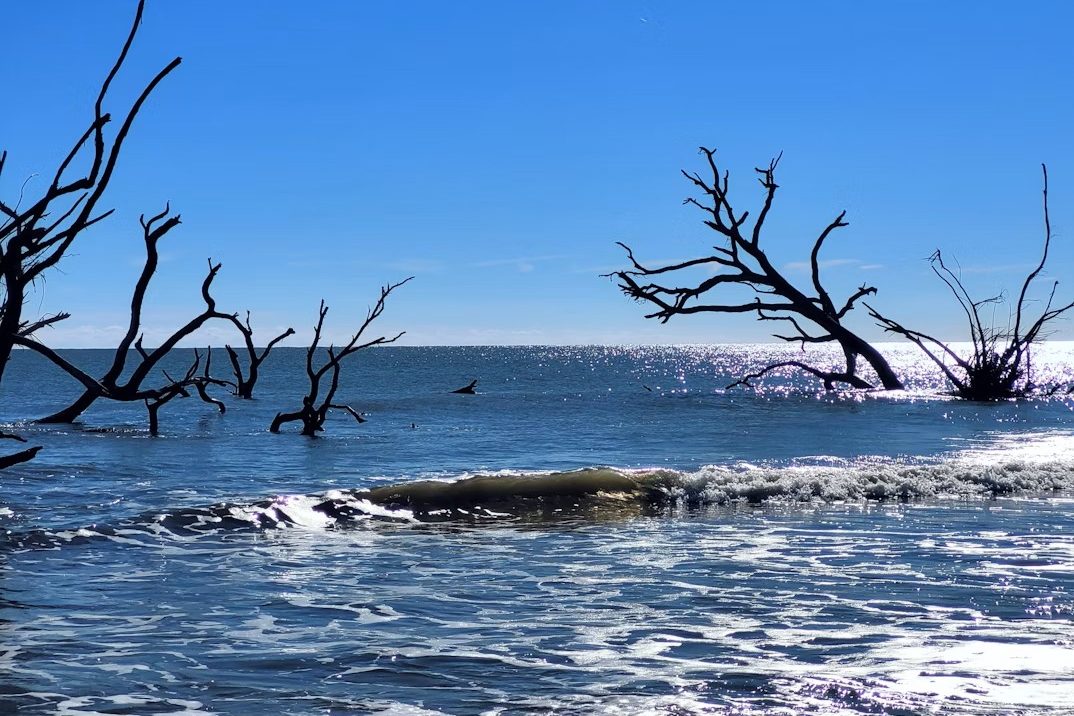Continued Statehood without Territory?
The Recent Disappearance of a Swiss Mountain Village Holds Lessons for Small Island Nations
Much has been written already about the landmark Advisory Opinion on Climate Change (hereinafter ‘AO’) of the International Court of Justice (‘ICJ’) and much more will follow. While the ICJ provided clarification in many respects, the AO opened up questions in others. An example of the latter is the paragraphs regarding the effects of sea level rise on the statehood of small island nations. Without elaborating further (see the declaration of Judge Tomka and the separate opinion of Judge Aurescu), the ICJ suggested that even if a state were to lose all of its territory, this would ‘not necessarily entail the loss of its statehood’ (see AO, at para. 363).
This blogpost suggests that recent events in a secluded Swiss mountain valley might help in understanding the implications of the ICJ’s statement. On 28 May 2025, the village of Blatten in the Wallis region of Switzerland made headlines worldwide. It was almost completely destroyed by a massive landslide. The natural disaster (which may or may not be linked to climate change) had been anticipated in the preceding days, and the 300 inhabitants had been evacuated. One farmer tending to his sheep died.
Ambitious Reconstruction Plans
From one day to the next, the village of Blatten disappeared. Its inhabitants didn’t, and they are committed to rebuilding the village. Blatten is a commune under Swiss law and as such is endowed with its own territory and considerable autonomy (see article 50 para. 1 Federal Constitution as well as articles 69 and 77 para. 2 Constitution of the Canton of Wallis). Its situation is insofar different from the one that small island nations potentially face as its territory didn’t disappear. In fact, the size of the territory didn’t change at all due to the landslide. However, rebuilding the village on the territory of the commune might not be possible.
In fact, rebuilding it in the exact same place is virtually excluded. The old village is covered by a layer of rock, ice and mud over a hundred meters thick in some places. The debris cone is expected to remain unstable over the coming years, if not decades. Rebuilding the village somewhere else on the territory of the commune might not be possible either, as large parts of the territory are at risk of rockfall or avalanches and therefore cannot be built on under cantonal and federal law. The official publication of a map indicating if and where construction is possible is expected this month.
At this point in the reasoning, the similarities with small island nations losing their territory will have become evident. Blatten has virtually lost its territory, but not its inhabitants, its history and its culture. Shortly after the disaster, the mayor of Blatten pointed out that the visible part of the village had been lost, implying that Blatten was more than just the buildings and streets that were now gone. Indeed, Blatten’s citizens continue to hold regular communal assemblies in an adjacant village, its cultural and sports associations are still active. Overall, there is a strong sense of community and a consensus that Blatten should be rebuilt. The mayor’s plan is to rebuild the village by 2029. Despite the practical and legal uncertainties, Blatten’s citizens symbolically celebrated the beginning of Blatten’s reconstruction.
If reconstruction on the territory of Blatten is not possible, an agreement with another commune for the reconstruction on their territory might be feasible. Besides raising practical questions under Swiss constitutional and administrative law, this solution also raises questions regarding the identity of Blatten and its population. Can Blatten be rebuilt somewhere else and still be Blatten? Or would it make more sense to support Blatten’s inhabitants in finding a home in other communes?
Time Is of the Essence
The answer to these questions is only beginning to emerge in the case of Blatten. What is clear – and this is relevant for small island nations – is that time is of the essence. The mayor’s ambitious time schedule for rebuilding the village is undoubtedly influenced by the realization that if too much time passes, people will have moved on. The former inhabitants of Blatten are scattered over the region, living temporarily with family or friends. Yet, they remain comitted to rebuilding and returning to Blatten. Will they think the same in four years, when they’ve found a new home? When their children go to a new school?
Small island nations, unlike Blatten, can see the catastrophe coming from afar. The lesson that Blatten holds for them already now is that action should be taken before it materializes. Without giving up on ambitious climate policies and adaptation measures, they should start preparing for the worst. Once people are forced to leave and scatter all over the world without any institutionalized solution provided by their home state, the latter’s statehood might erode away. Note that according to the AO, loss of territory would not necessarily entail the loss of statehood (para. 363).
A Pragmatic Remedy for an Internationally Wrongful Act?
One respect in which the AO provided clarification is that breaches of obligations with regard to climate change constitute internationally wrongful acts which ‘may give rise to the entire panoply of legal consequences provided for under the law of State responsibility’ (para. 445). In 2023, Australia and Tuvalu signed a treaty, the Falepili Union, which aims to provide the citizens of Tuvalu with a special human mobility pathway to access Australia, while reaffirming Tuvalu’s sovereignty. When the program started its first round of applications in the summer of 2025, it immediately enjoyed great demand, with over one third of Tuvalu citizens applying for a visa. In case of disappearance of state territories due to sea-level rise – where restitution is virtually excluded – arrangements like the Falepili Union could be a pragmatic remedy for an internationally wrongful act related to climate change.
This blogpost is not claiming that the situation of small island nations threatened by sea level rise and the fate of Blatten are identical. There are important differences, such as the difference between one’s identity as ‘citizen of small island nation X’ and ‘citizen of Blatten’. The fact that Blatten is integrated into the Swiss constitutional structure and can count on cantonal and federal aid is another, obvious difference. Nevertheless, for the reasons set out above, Blatten holds lessons for small island nations facing existential threats. And depending on what happens with Blatten, these lessons might be a source of hope.

Robin Beglinger is a PhD student at the University of Zurich. His research interests include public international law, constitutional law, and their intersection.
